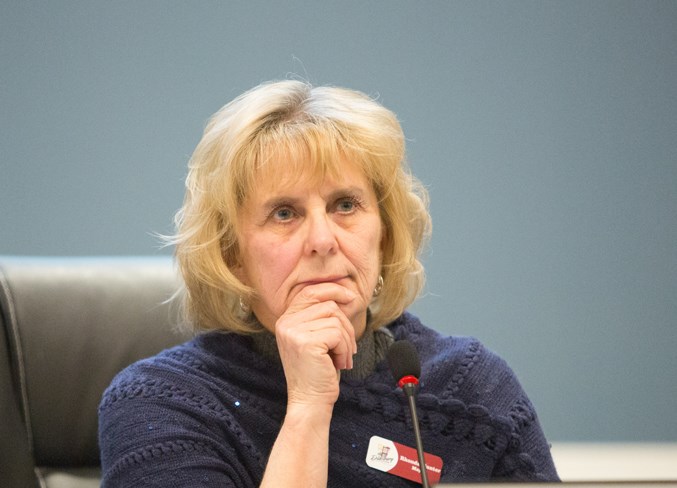DIDSBURY -- After several months of discussion and debate, the Town of Didsbury's 2019 operating budget was passed at the regular meeting on March 12.
The operating budget was approved as presented with $4,870,000 in municipal tax revenue being generated and total expenditures of $11,933,486.
The operating budget will include a two per cent increase in the property tax rate, which will go from 8.3 to 8.47. Staff presented a graph in the council agenda with 10 different residents and how their taxes would be affected.
On average, using the recent assessments, homeowners would see a decrease in taxes from $3,048 in 2018 to $2,982 in 2019.
Amanda Riley, the Town of Didsbury's chief financial officer, said that it's important to note that although the 2019 operating budget was passed the tax rate will not be set until April.
"Therefore we cannot comment on what the mill rate will be for residential or non-residential as those decisions have not been made yet," said Riley.
Assessments were mailed out in February, said Riley.
"Overall property assessments were lower than last year," she said. "Whether a taxpayer pays more or less depends on their assessed value compared to the prior year and it also depends on the mill rate compared to last year's mill rate. There may be property values that increased. For example, where there were improvements to a property, an increase in the assessed value is expected."
The 2019 budget will see taxation revenue drop from $4,922, 272 in 2018 to $4,870,000, a difference of $52,275. Total revenues for 2019 is $11,993,486 up 2.28 per cent from 2018 ($11,667,596). Revenues also sees $5,348,872 from sales and user fees in 2019 up 0.46 per cent from 2018.
Top expenditures in the 2019 budget are: salaries and wages at $4,181,545 up 4.42 per cent from 2018; contracted and general services at $2,846,655 up 5.07 per cent from 2018; and materials, goods and utilities at $128,794 up 7.80 per cent from 2018.
During discussion on the motion, Coun. Bill Windsor questioned why there were four different presentation formats for the operating budget.
"We've had four different presentations on the operating budget and every one's been different," said Windsor. "It can become very confusing. That's where we wonder if there is any cuts in the expenses because it's so difficult to follow through when the presentation changes each time and we don't see consistency from one presentation to the next."
Windsor added that he would have liked to have seen the actual numbers from 2018 represented in the tables for comparison.
Riley answered that the town is currently going through the audit and the finalized statements are not out yet.
"As far as the presentation of this document we can work to put the actuals in," said Riley. "The reason we were hesitant was because we're into the third month of the year and the actuals aren't final. So to present something and have it change would be somewhat confusing as well."
The vote on the motion was five in favour and two opposed. Coun. Erhard Poggemiller, who was one of those who was against the motion, along with Coun. John Baswick, said that he had concerns with raising the tax rate.
"My concern is that historically when you do a two per cent increase -- and I understand what councillor Engel had said about the decreases on the individual properties -- however, my concern is that ongoing the assessment goes up and that never comes down," said Poggemiller.
"I have a concern about that. I think we have to be real careful about that two per cent. I believe that council asked administration to come back with a decrease of some sort if I remember correctly and I don't see that here."
Poggemiller said that in the difficult times that the province is having, council shouldn't automatically be increasing everything.
Mayor Rhonda Hunter told the Gazette it was important for council to be able to set aside reserves for RCMP funding as well as to build up the general reserves.
"We have a small start on our general reserve fund," said Hunter.
Hunter reiterated that it's important for people to note that the tax rate has not been set yet.
"Given the scenarios it shows that with $4,870,000 in tax revenue, the effects if we passed that (tax rate)," she said. "So when all is said and done after the provincial assessments and after all the appeal times are over, any of those adjustments will be taken into account."
Hunter said that with a two per cent tax rate increase, based on the assessments most homeowners would not see their property taxes go up.
"The tax percentage would go up but the bill they get in the mail wouldn't go up from last year," she said. "Some might. There will always be the anomalies. People whose assessments went up. Whether that's relevant at this point; all those percentages. We just needed to know the revenue we needed to run the town this year. The tax rate comes when all the final numbers are done."
Hunter said they could have waited until the end of April before passing the 2019 operating budget but the majority of council felt comfortable enough to pass it.



